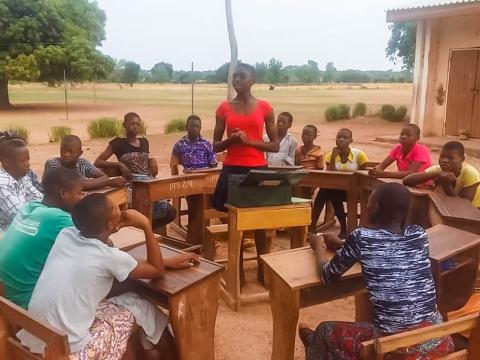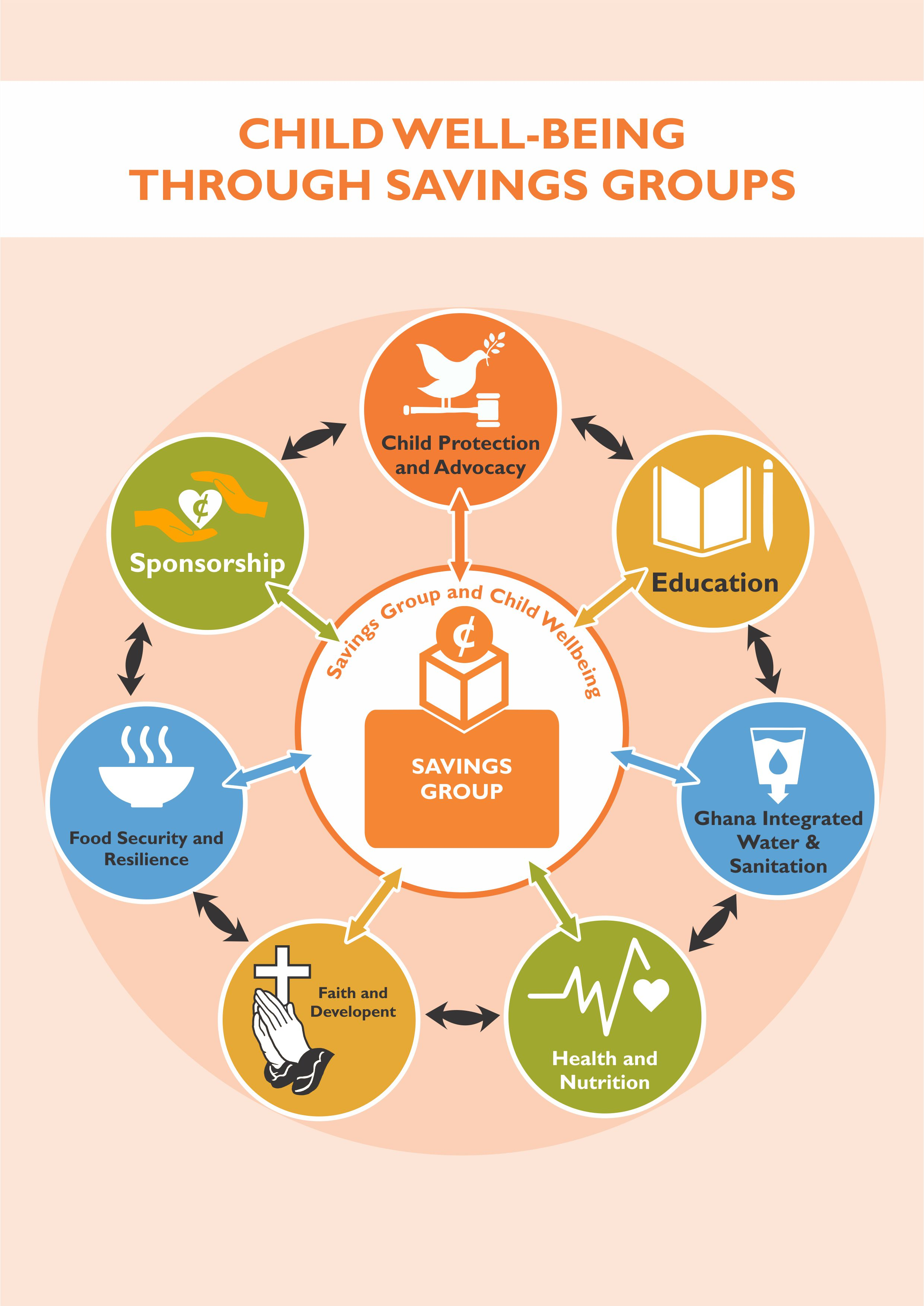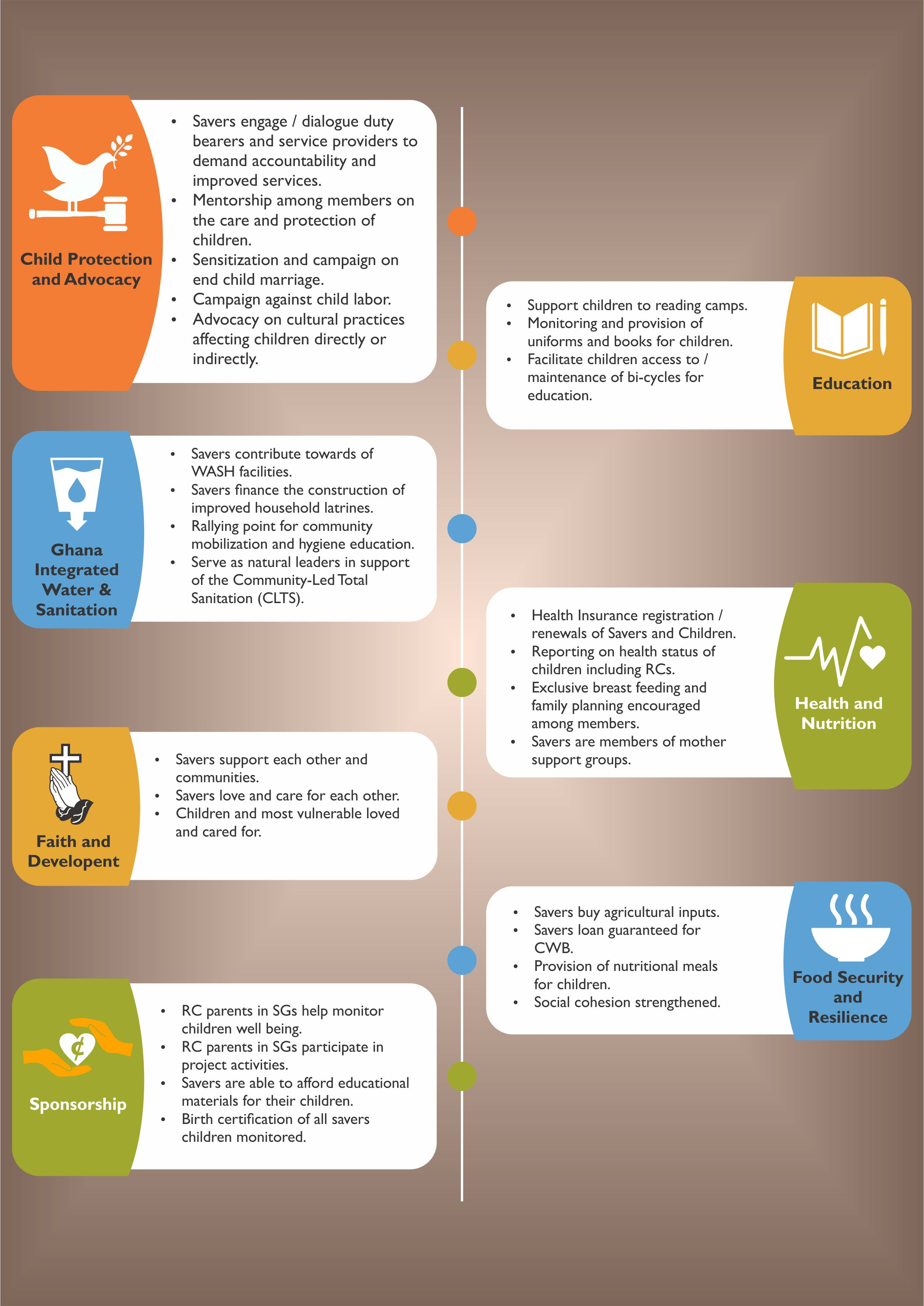SG2020: The Future of Savings Groups - What Does it Mean for Adolescents in Ghana?

By Dickens Thunde, National Director, World Vision Ghana
Introduction
SG2020: The Future of Savings Groups will take place on March 10 -12 in Durban, South Africa bringing together practitioners to connect, engage and learn from each other about the challenges and opportunities they face in supporting Savings Groups worldwide. One of the conference tracks will explore how youth savings groups (YSGs) can respond to the needs of the youth, promote entrepreneurship and workforce development skills that will help young people secure a prosperous future as they move into wage employment and entrepreneurship.
There are so many challenges children living in poverty face as they grow. In Ghana, one (1) in 10 children live in extreme poverty and 1.2 million children live in households that are unable to provide adequate food due to insufficient income (UNICEF, 2016). As a result, children may stop going to school so that they can work for a living. This situation consequently poses risk to adolescent girls getting them into early marriages, or leaves them without literacy skills which they need to further their careers.
Sadly, these practices trap these adolescent girls and their children into a possible lifetime of economic disadvantage. According to Ghana Demographic and Health Survey (2014), 41.6% of women with no education were married before 18 as compared to 4.7 percent of women with secondary education. This shows that, 4 in 10 of women with no education were married before 18 compared with 4.7% with secondary school education.
A Generation seeking Hope
World Vision’s Savings for transformation groups model has been used as one of the springboards to reduce exposure of children to all forms of violence and give children hope for the future. In Ghana, through World Vision Ghana’s Cocoa Life Project, women beneficiaries have been economically empowered. Thus, savings groups have become spring boards for anti-child marriage and child labour education. The project facilitators used the focus group discussion approach to identify reasons why girls stay out of school. To address the identified challenges including poverty, adolescent girls were grouped and trained in employable skills which will enable them get job quicker or be self-employed and save some money.
Ayishetu Mohammed (19 years), has been a member of the "Onuado Savings Group" a mixed adult SG, pioneered by World Vision Ghana since she was 17 years. She joined the savings group for fear of dropping out of school like her other eight siblings due to poverty. When she failed her first basic school certificate examination, she was at the risk of early marriage. Because of her savings, she was able to register and retake her basic school certificate examinations. She is now confident of her future.
Ayishetu will be one of the speakers at the conference, sharing her story. "I aspire to be an example for young girls in similar conditions living in small communities and show that it's possible to succeed if you are determined, regardless of the cultural, religious and social limitations. My greatest achievement as a young girl has been not getting pregnant at a young age and gaining admission into senior secondary school to keep my dream on course of working in the military," she said.
World Vision Ghana is implementing adolescent/youth savings groups model to help many children like Ayishetu to secure their future.
Transforming young lives through savings groups
As a National Director for World Vision Ghana, I have seen how savings groups have empowered youth to respond to their needs, promote entrepreneurship and workforce development skills that help them secure a prosperous future as they move into the employment space.
Savings Groups are also providing opportunities for young people to learn about child protection and facilitate access to information and services (welfare, health, education) in their communities and districts. Integrating child protection education with savings groups, microfinance and youth producer groups has helped ensure that no young beneficiary who enters the labour market is exploited along the value chain. “Child protection education helped me not to enter early marriage. I am now confident of my future,” said Ayishetu.
The savings group model also empowers parents to be economically independent to be able to cater for their children and reduce exposure of their children to sexual exploitation, child labour and forced/child marriage. Under the Cocoa Life project, World Vision Ghana established about 185 Savings groups across the 135 communities in groups of 25 with over 56% women membership with annual savings per group of US$ 2,003. With 4,802 members (2698 women and 2104 men) the groups had a combined capital of $11,218.86 for 2018.
The second phase of the project evaluation demonstrated that there were many benefits for children when savings groups were integrated into the market systems approach. The project resulted in a 12% reduction in women and girls’ unpaid care work; over 50% commitment to the promotion of gender equality by men, traditional leaders, religious and opinion leaders resulting in increased women’s participation and representation in decision making positions.
Monitoring and evaluation reports by external evaluators have shown that additional livelihoods such as introduction of savings for transformation groups (S4T) increased women’s income by well over a 100%. This resulted in over 50% increase in girl child education, 50% reduction in teenage pregnancies, and 60% reduction in child labour.
As highlighted in the diagram below, SGs have indeed been a pillar upon which many child well-being outcomes have been achieved like health, nutrition, education et cetera.


More information about World Vision Ghana's savings groups and SG2020 Conference:
SG2020 Conference Tracks SG2020 Conference Registration
World Vision Ghana (WVG) is a Christian relief, development and advocacy organisation dedicated to working with the most vulnerable children, their families and communities to overcome poverty and injustice. We have intervened over the past 40 years in Ghana in the areas of Household Food Security and Resilience, Primary Healthcare and Nutrition; Water, Sanitation and Hygiene (WASH); Reading Improvement in Primary Education; with Child Protection, Faith and Development to help every child experience life in all its fullness.